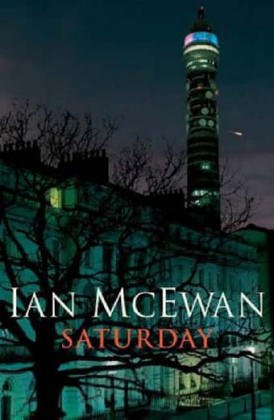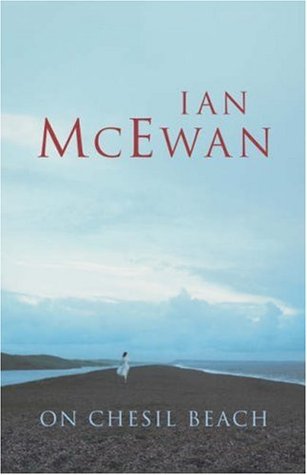Ian McEwan’s Saturday is the story of Henry Perowne, a London based neurosurgeon, as he reflects on his life via the events that happen during his day off. Mixing organised chores with random incidents, the novel provides a great character study, one of a man coming to terms with his advancing years, although the book is low on action.
One morning, Perowne wakes early to witness an aviation accident, which troubles him throughout the day. As the day progresses he makes love to his wife, gets involved in a traffic accident, gets beat at squash, buys fish, visits his sick mother, listens to his son’s band perform, argues politics with his poetess daughter, and settles down for a family meal in the evening. While all this happens, the London march against the impending war in Iraq gathers momentum.
The characters are extremely well done with the exception, perhaps, of Daisy, Perowne’s daughter, who simply argues her anti-war stance and hides her own little secret. Daisy and Theo, his son, are, unlike their father, creative souls, and at the age where they are ready to flee the nest. Baxter, the novel’s main antagonist, is a young man rendered emotionally unstable by a degenerative brain disease, embarrassed by his condition yet unable to prevent its detriment to his life. And Perowne, through all this, meditates on everything, no matter how seemingly insignificant, and the author presents him as emotionally ambivalent man; a man slow to take sides, but always willing to consider the wider picture.
The plot is small but the emotional and philosophical conclusions drawn from each observation or incident serves to complete the picture of Henry Perowne’s day. In the evening, Baxter returns to cause havoc with the surgeon’s family, a scaled down metaphor for the impending invasion of Iraq being an example of how one event, no matter how minimal, can lead to big changes in one’s life.
Overall, McEwan has crafted a novel worthy of praise, but its meditative assault can be overwhelming at times; the use of neurosurgical terms is difficult for the layman, but our protagonist is a neurosurgeon so it’s more than appropriate. It’s certainly relevant to the current political climate, and probably serves as a slightly autobiographical account of McEwan’s feelings as his own family grows up and becomes independent. Saturday is worth the read, for an interesting study of making sense of the world, and of growing old; or, as Perowne says, Saturday will become Sunday.


I think this is one of his strongest novels. Love the scene when he crashes his car and tries to blag his way out of danger.